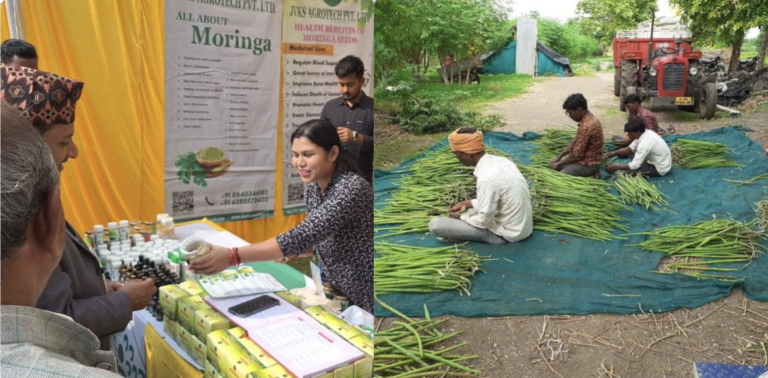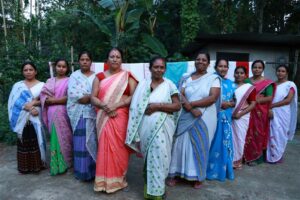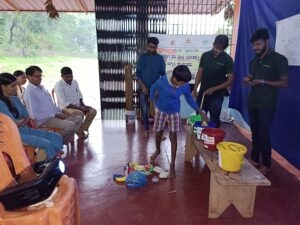Kamini Singh’s journey began not on a farm, but in some of India’s most prestigious research institutions — the Central Institute for Subtropical Horticulture (CISH) and the CSIR-Central Institute of Medicinal and Aromatic Plants (CIMAP). With a strong academic background and years of experience in horticultural research, Kamini was at the forefront of innovations in organic farming. Yet, something was missing.
Despite her academic success, Kamini realised that her work rarely reached the people who needed it most — the farmers. “The insights and innovations born within my lab walls seldom reached the hands of those who needed them most — the farmers,” she shared in a conversation with The Better India. This disconnect between research and real-world impact became impossible to ignore.
With 17 years of research behind her, Kamini made a bold decision: she stepped out of the lab and into the fields of Uttar Pradesh, determined to make a difference where it truly mattered.
Planting the Seeds of Change
In 2016-17, Kamini was entrusted with leading a government initiative to promote organic farming practices across Uttar Pradesh. However, the transition to organic methods wasn’t easy. “The first two to three years in organic farming can be tough because the soil takes time to rejuvenate without chemical inputs,” she explains.
Many farmers signed up for subsidies but failed to adopt genuine organic techniques, resulting in poor yields and disillusionment. Kamini knew a different approach was needed — one that would be low-maintenance but high-yielding.
That’s when moringa, also known as drumstick, caught her attention. A hardy, nutrient-rich superfood, moringa required minimal inputs and thrived in local conditions — a perfect fit for organic farming.
A Bold Experiment
In 2017, Kamini leased seven acres of land near Lucknow to trial moringa farming. The results were extraordinary. “Moringa not only required minimal irrigation but also adapted beautifully to the local climate,” she recalls.
She encouraged farmers to plant moringa saplings along their field boundaries, allowing them to experiment without sacrificing their main crops. The benefits were immediate; farmers began saving nearly ₹30,000 a year, drawing significant interest.
To tackle market limitations, Kamini shifted focus to value addition. Instead of selling moringa in bulk, which was difficult for small farmers, she began processing it into powders. This pivot opened the door to innovation and entrepreneurship.
Scaling Up and Creating Impact
What began as a small experiment soon grew into a full-fledged enterprise. Kamini and her team started developing a range of moringa-based products — today, they offer 22 items, including green tea, soaps, cookies, oils, face serums, and nutritional capsules.
In 2019, she formalized her work by founding Doctor Moringa Pvt Ltd, and established a Farmer Producer Organisation (FPO) to bring structure and sustainability to the mission. Through the FPO, farmers could collectively market their produce, eliminate middlemen, and gain better economic returns.
One such farmer, Shalikram Yadav from Bakshi Ka Talab, recalls meeting Kamini at a city stall. “She encouraged me to plant 400 moringa saplings along my field boundary. The profits were so good that I’ve now expanded to 10 acres,” he shares.
A Lasting Legacy
Kamini Singh’s transition from scientist to social entrepreneur has not only built a ₹1.75 crore moringa business but also empowered over 1,000 farmers across Uttar Pradesh. Her story is a testament to what happens when research meets grassroots action — innovation transforms lives.
-inputs from The Better India





